Technology is changing reproduction, says Professor I. Glenn Cohen ’03, one of the world’s leading experts on the intersection of bioethics and the law.
In a lecture titled “The Second Reproductive Revolution,” Cohen, the faculty director of the Petrie-Flom Center for Health Law Policy, Biotechnology, and Bioethics at Harvard Law School, explored how a number of cutting-edge reproductive technologies — from uterus transplants to gene editing to embryos derived from our skin — might “remake society.” While these technologies have the potential to extend the boundaries of reproduction, he said, they also raise new and difficult ethical and legal challenges.
Cohen delivered the lecture at Harvard Law School on April 29 to mark his appointment as the first James A. Attwood and Leslie Williams Professor of Law. Cohen joined the HLS faculty in 2008 and, five years later, earned tenure. He is the author, co-author, or editor of a dozen books and countless articles. His chair lecture previewed research he is doing for his forthcoming book, tentatively titled “The Second Reproductive Revolution.”
Introducing Cohen before the lecture, Dean John F. Manning ’85 praised Cohen as a superb teacher and a prolific scholar who has rapidly become one of the most influential voices on health law and bioethics. As faculty director of the Petrie-Flom center, Manning said, Cohen has helped “expand the frontiers in health law, bioethics, and biotechnology.”
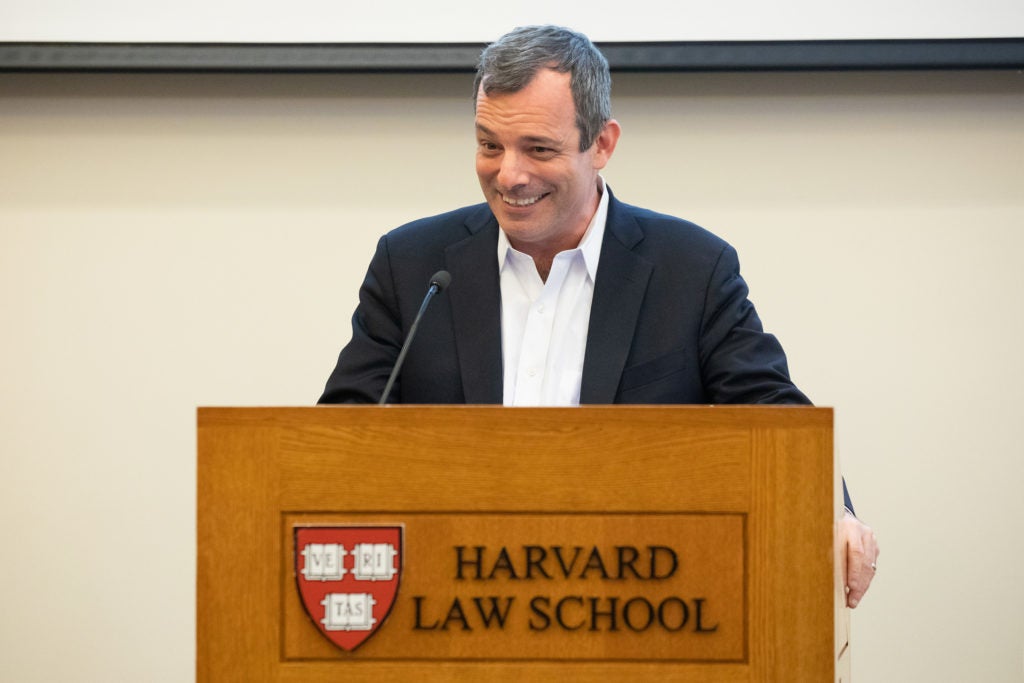
“Glenn is an amazing teacher at a time when we the world needs amazing teachers,” said Manning. “[He] is already, early in his career, in the pantheon of legendary Harvard Law School teachers.”
In his talk, Cohen focused on the rapidly changing field of biotechnology. He discussed the history of the reproductive revolution and examined five new reproductive technologies — egg freezing, uterus transplants, mitochondrial replacement therapy, gene editing, and In Vitro Gametogenesis (IVG).
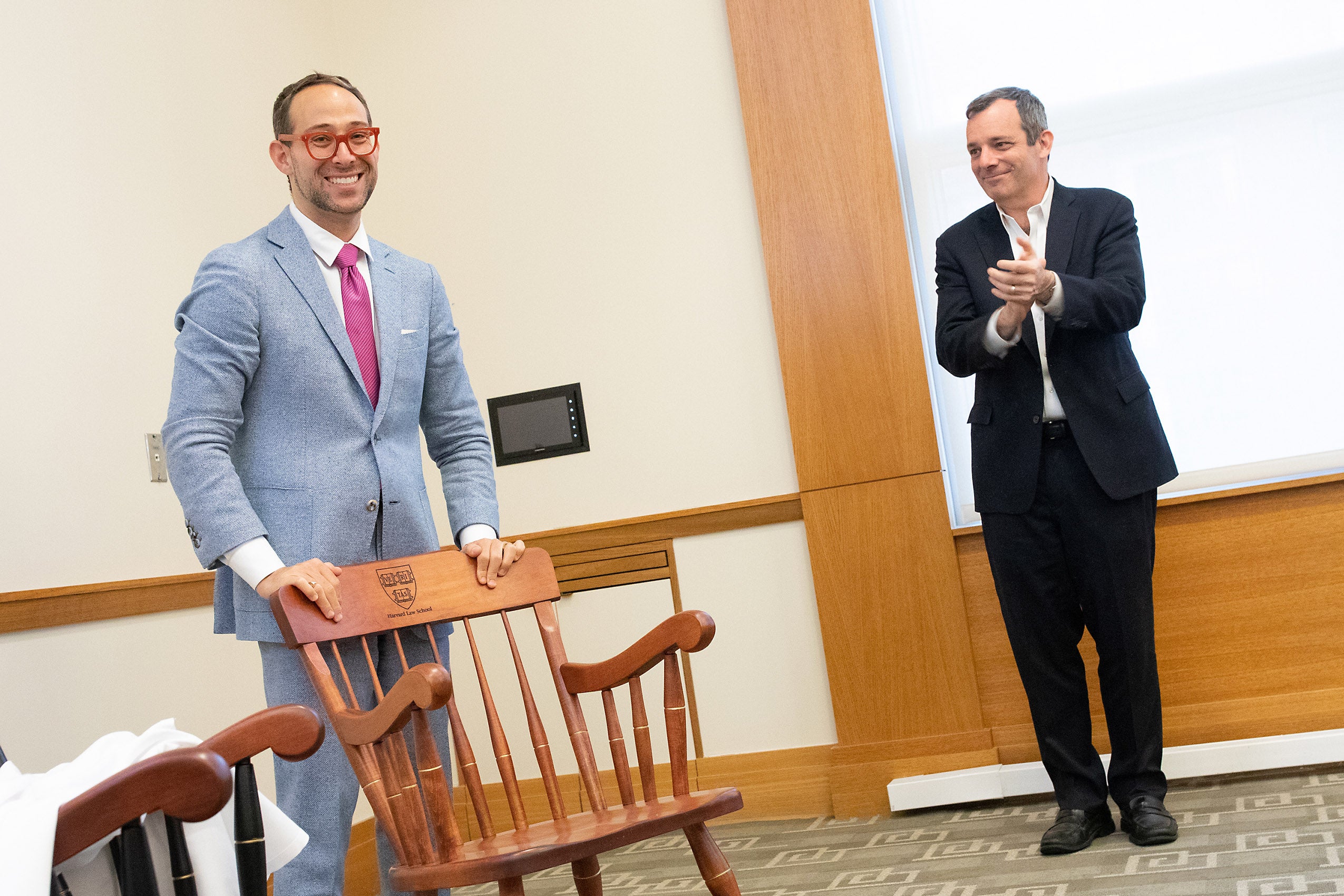
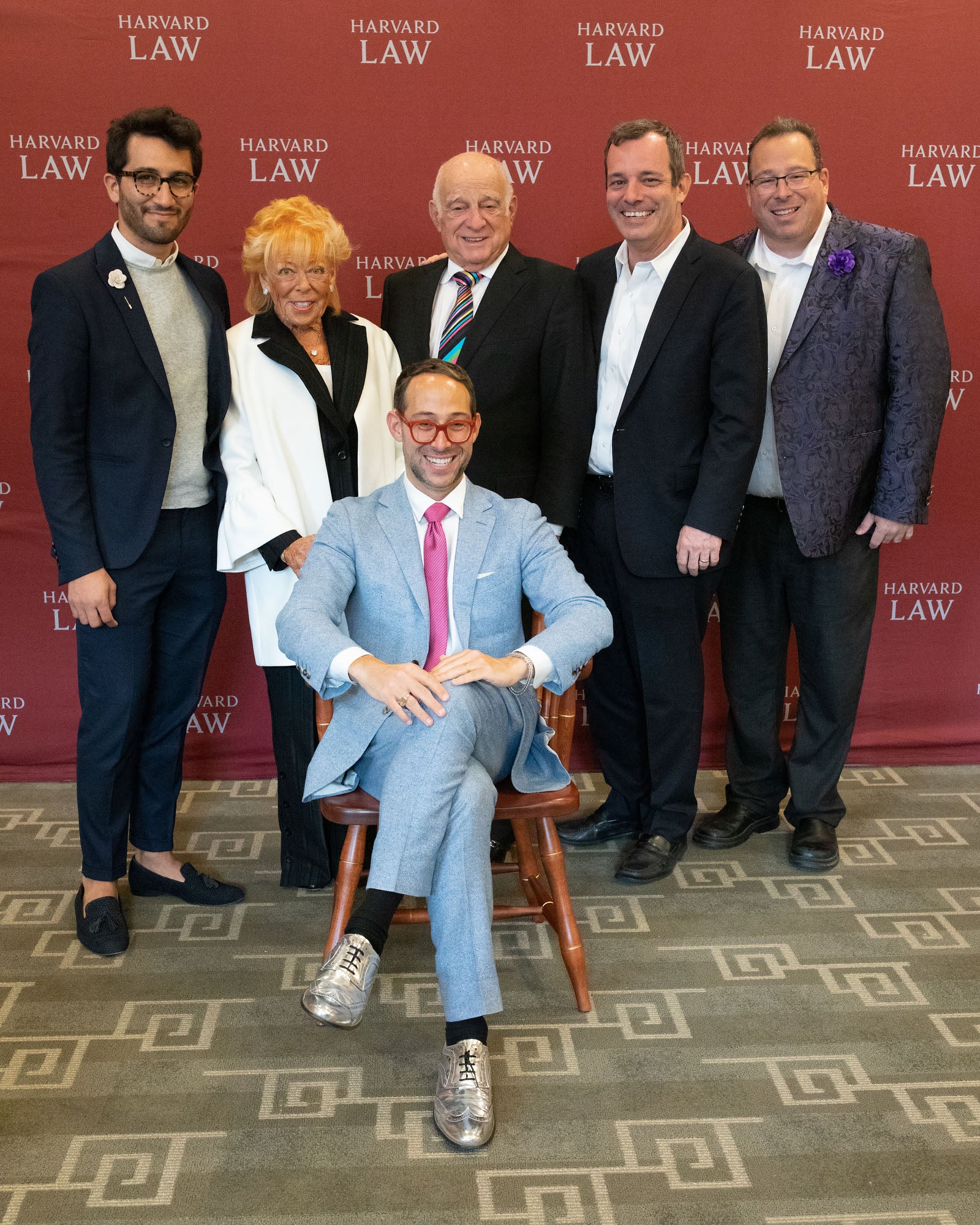
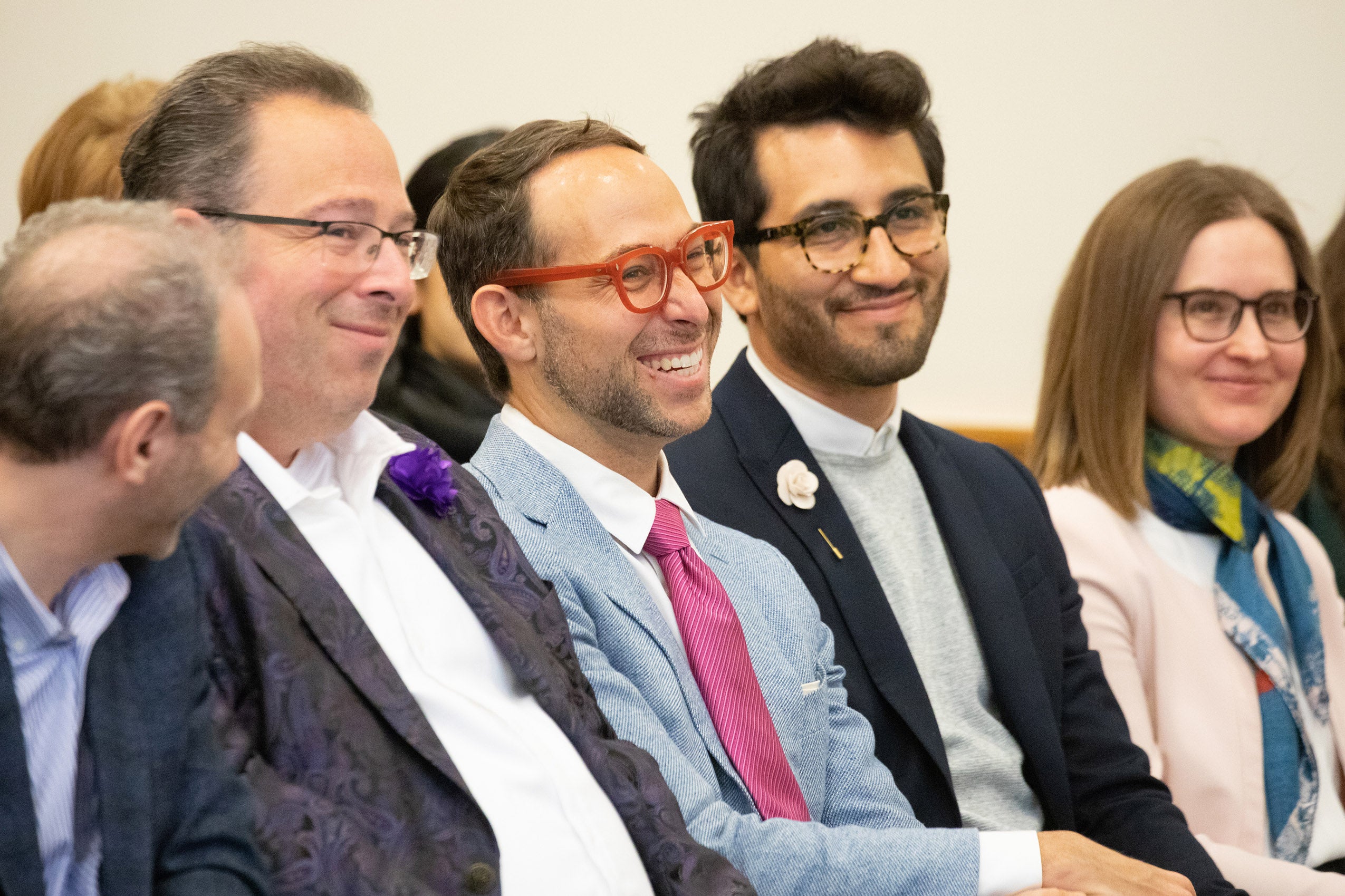
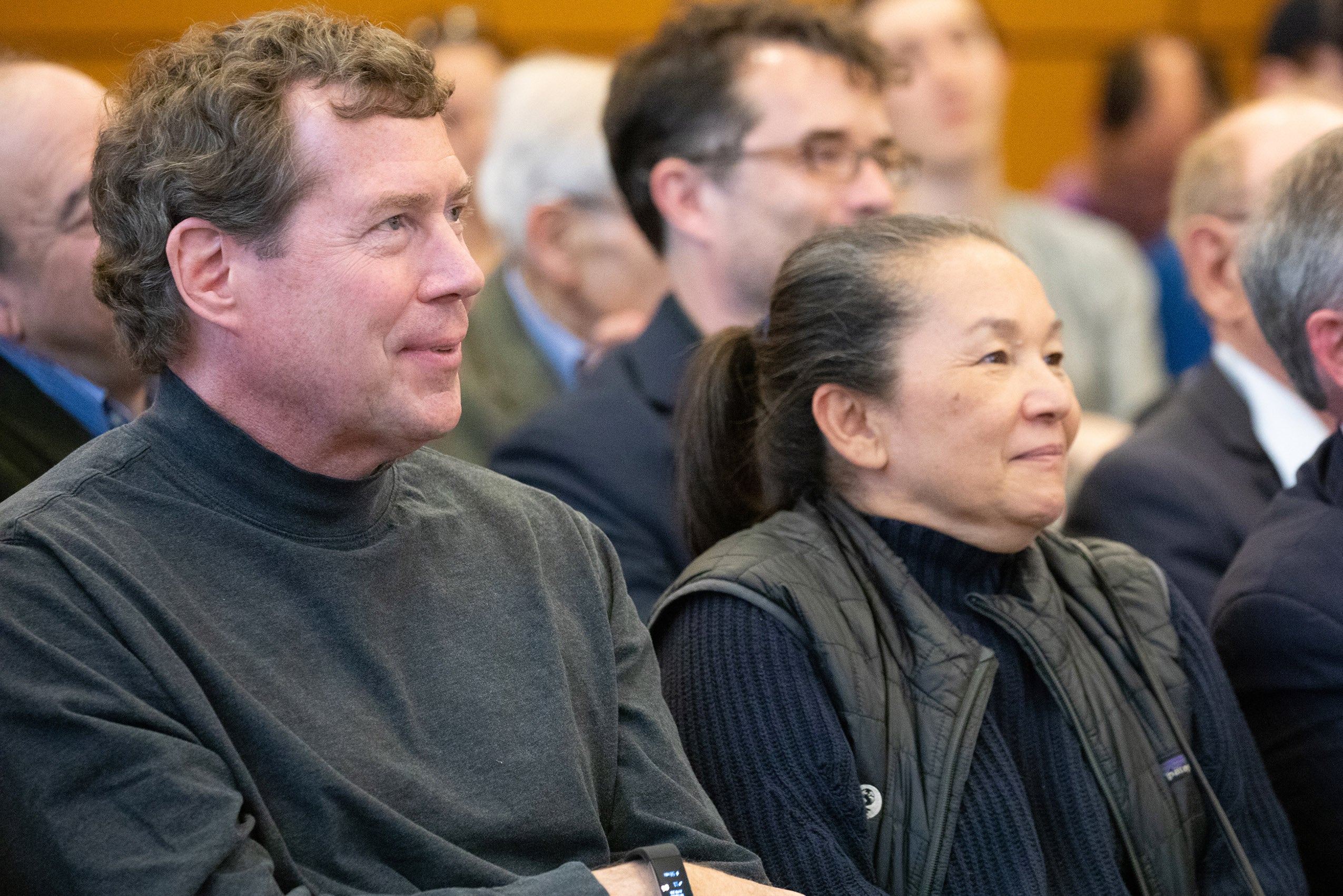

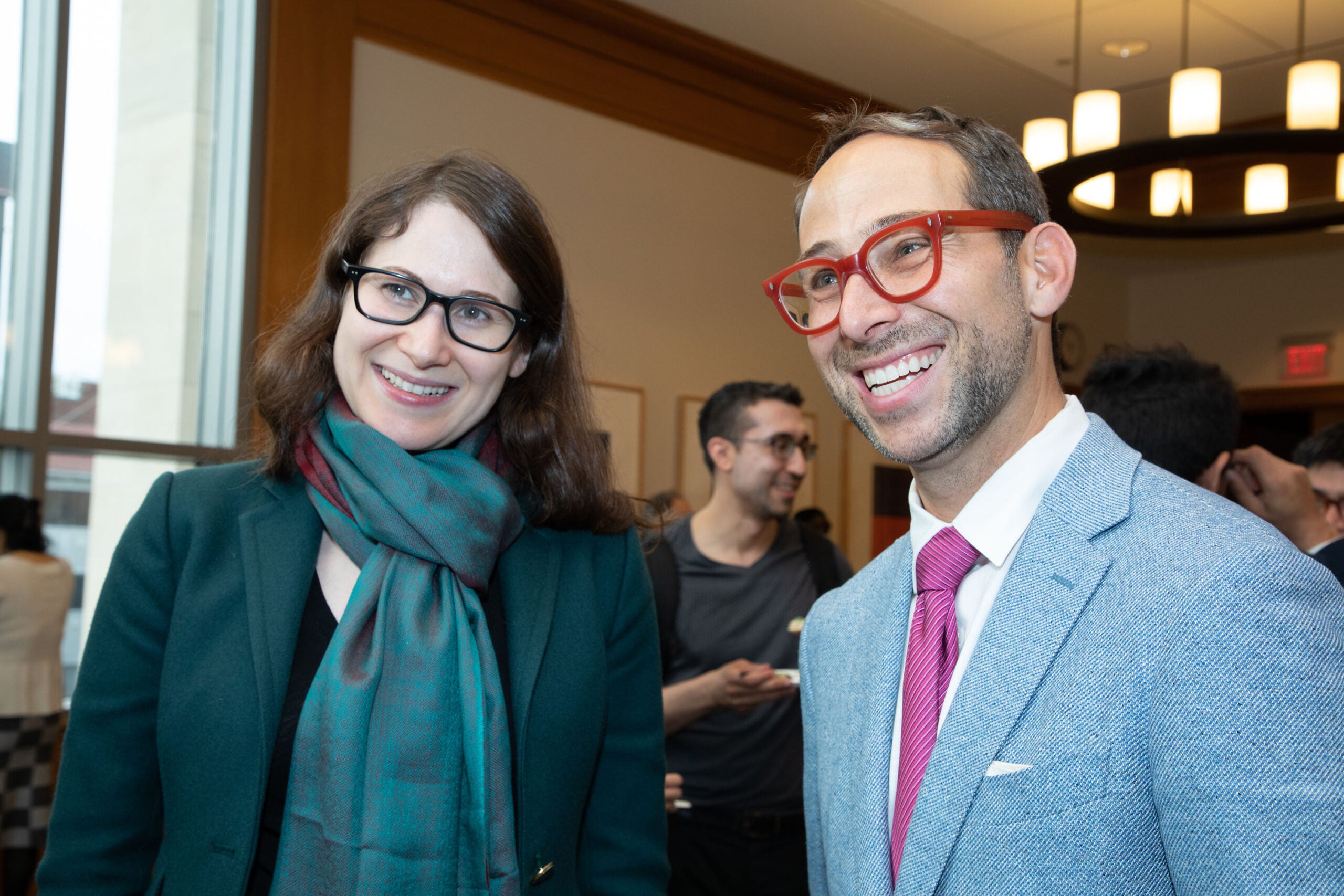
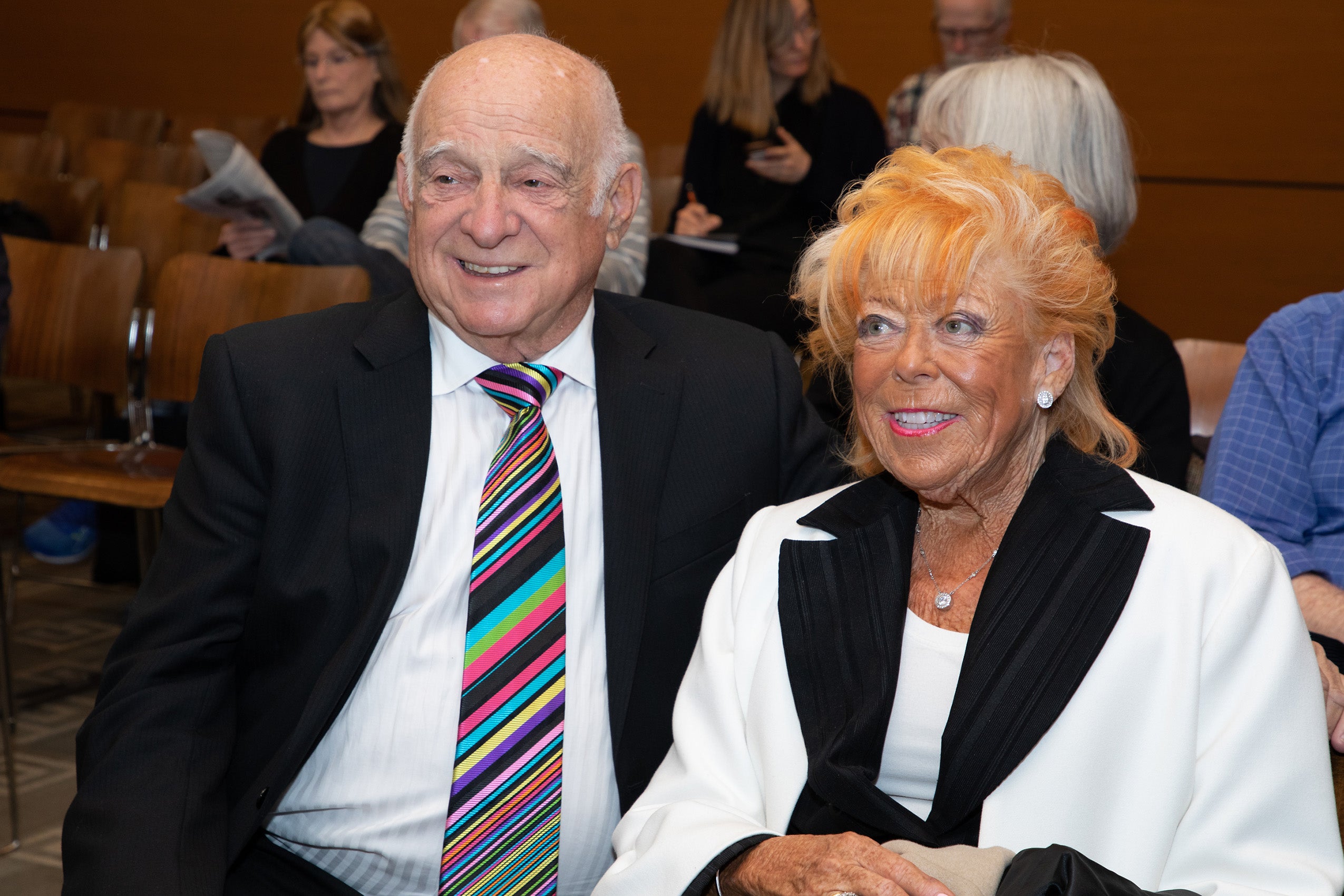
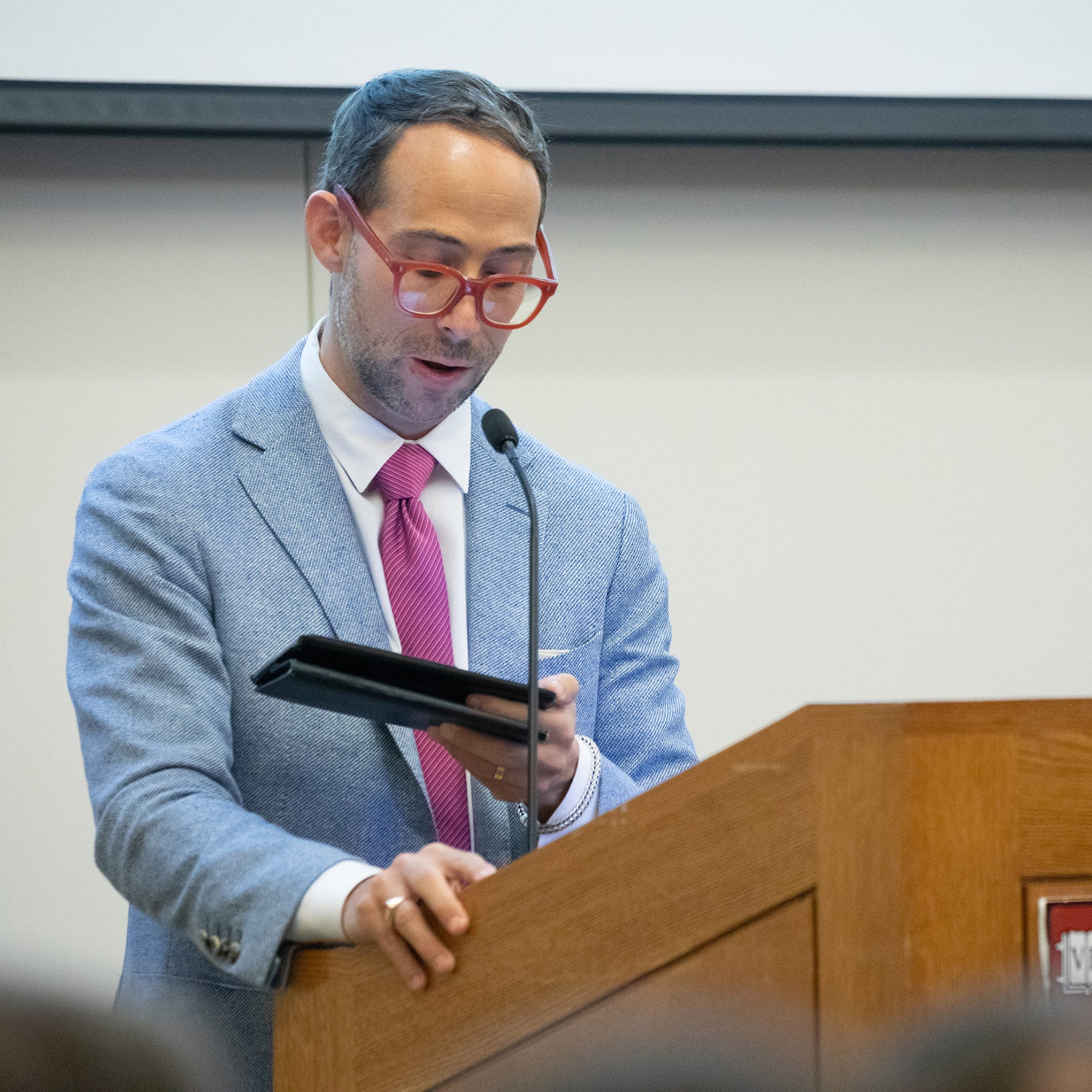
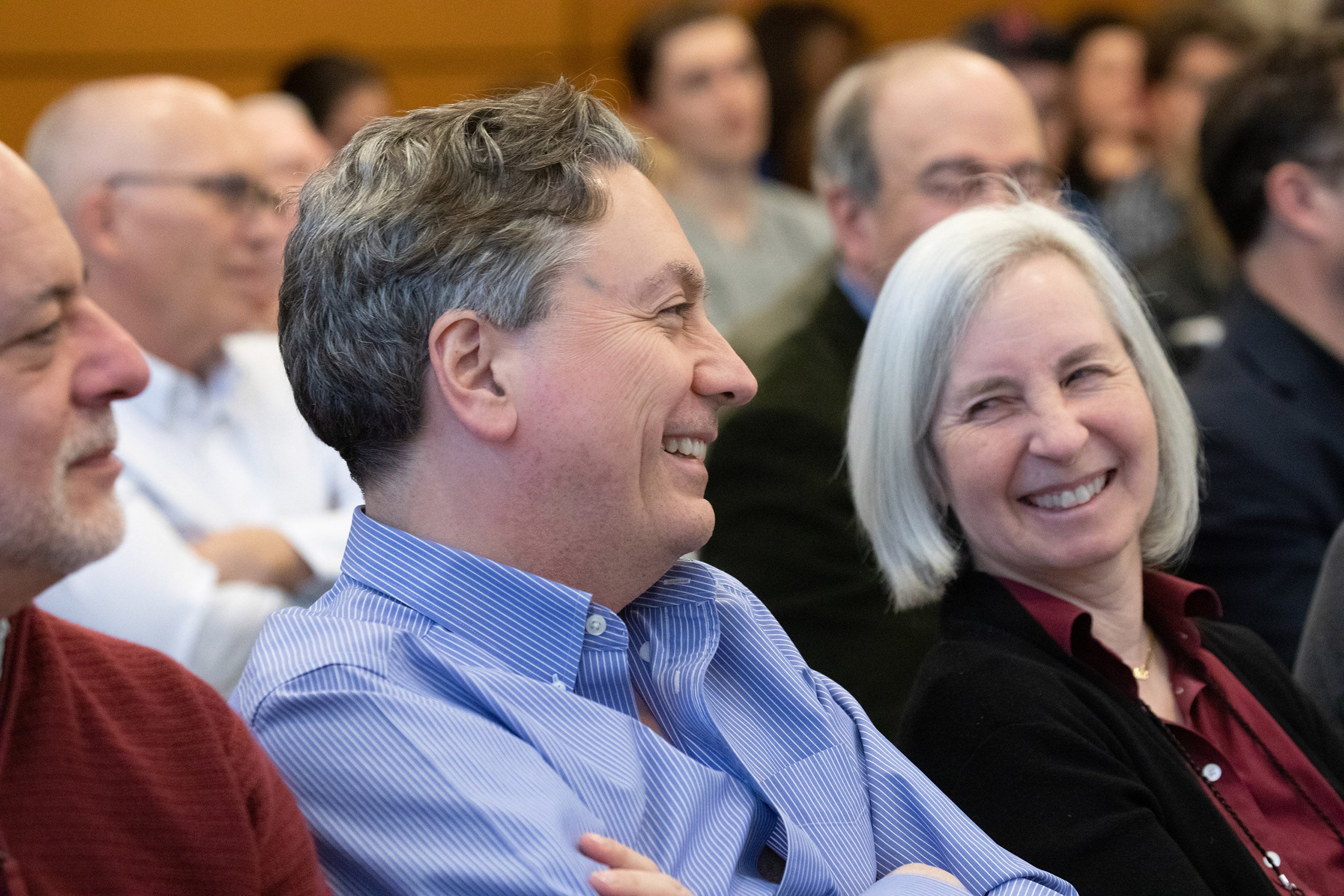
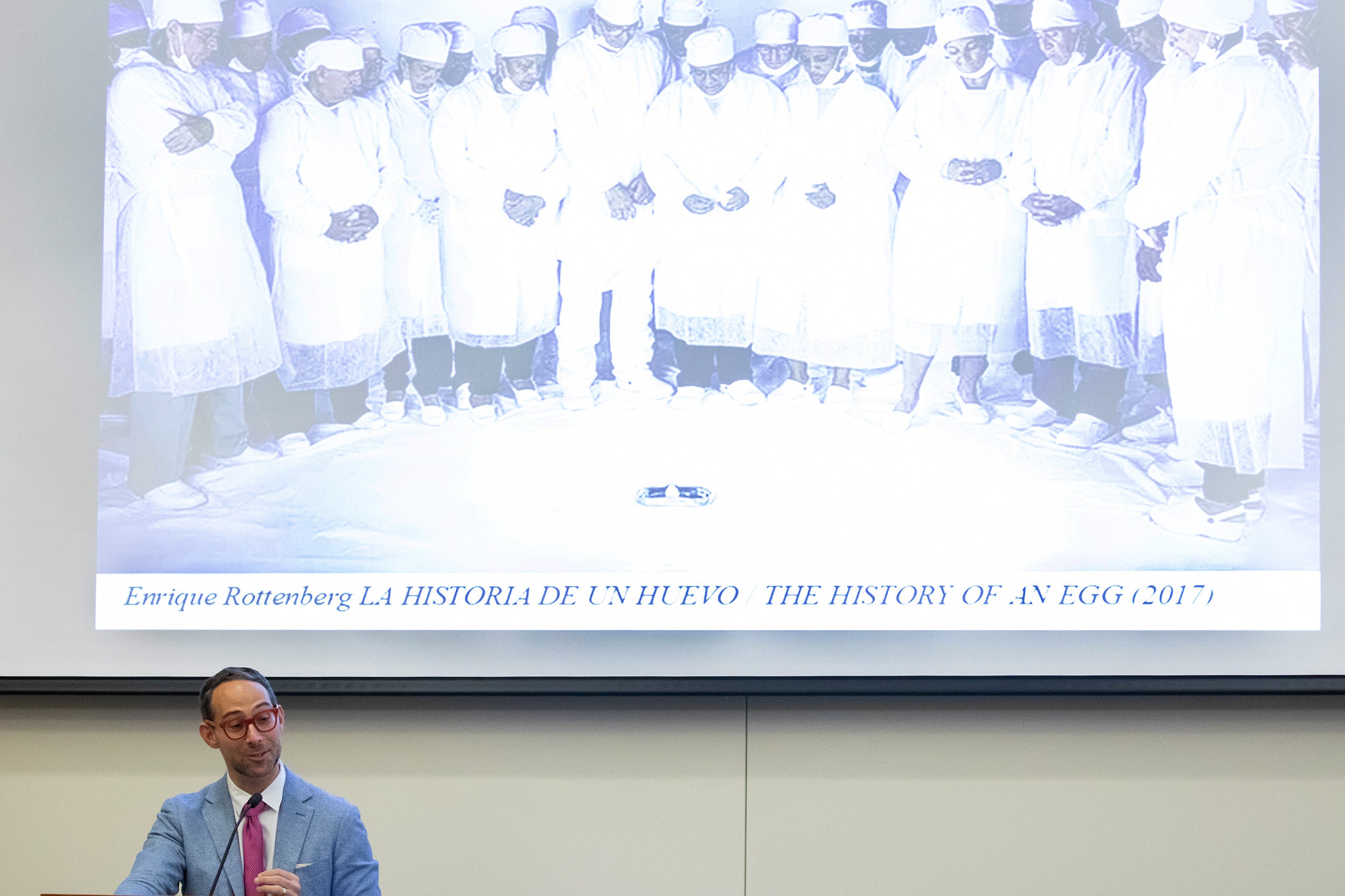
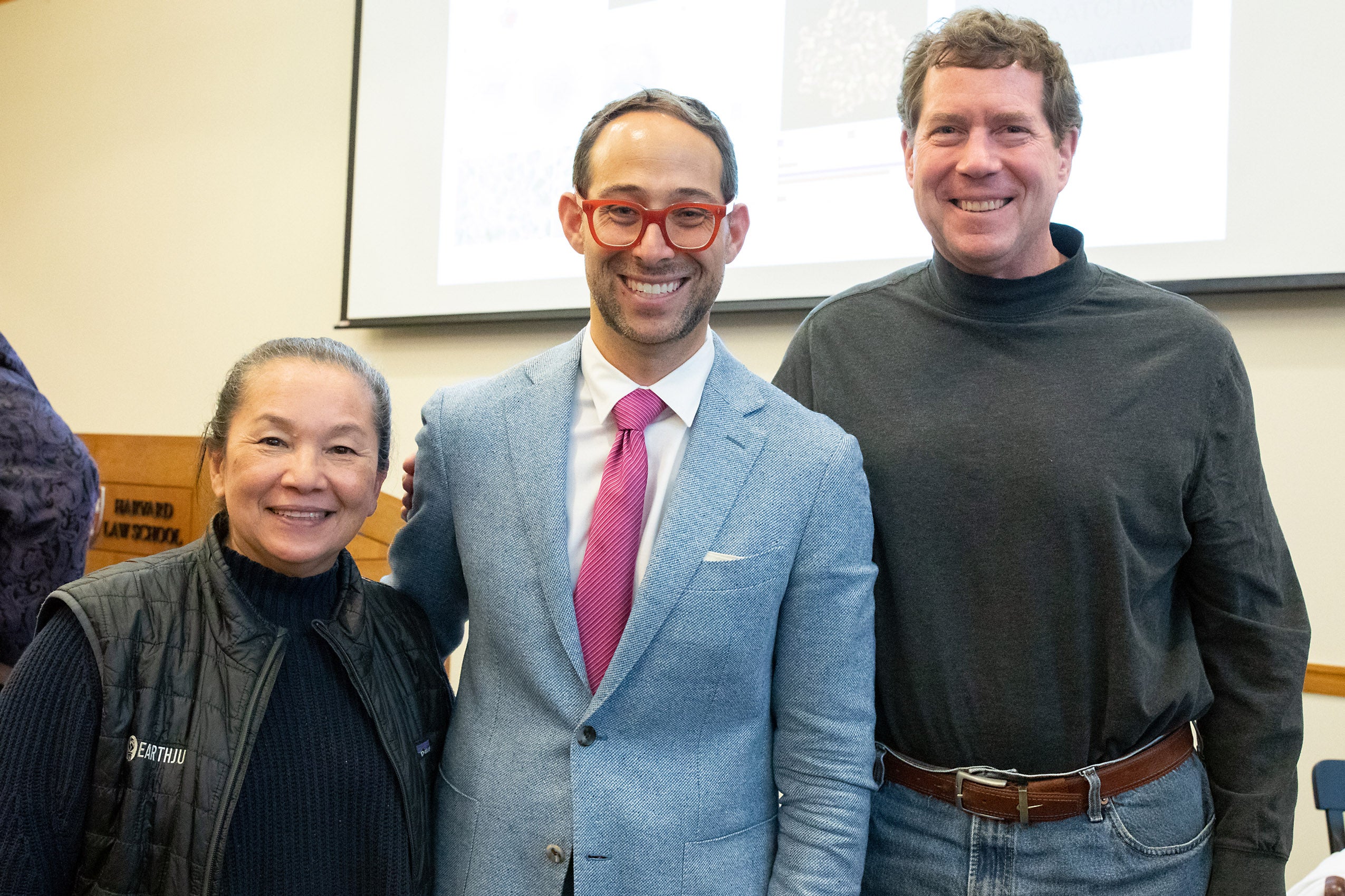
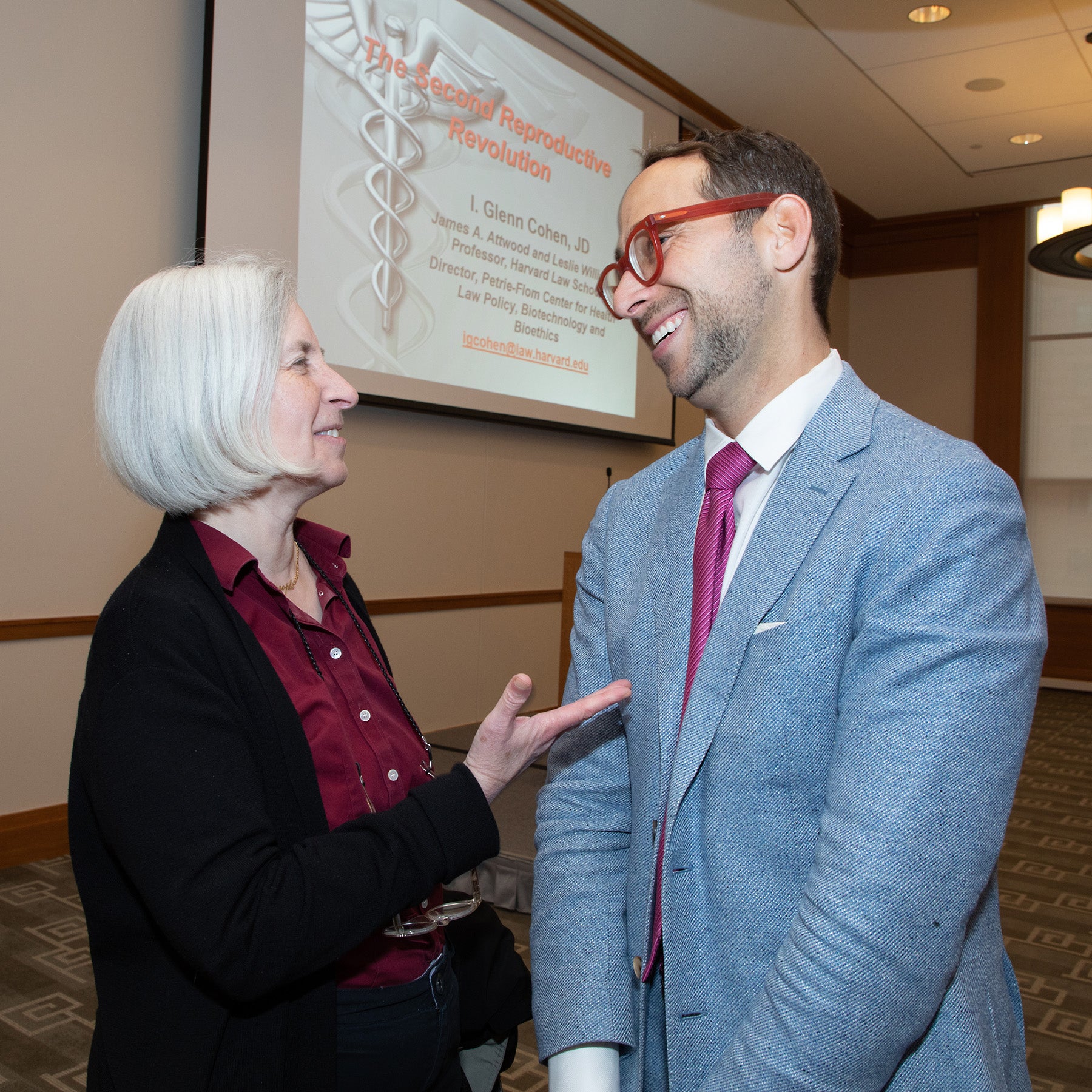
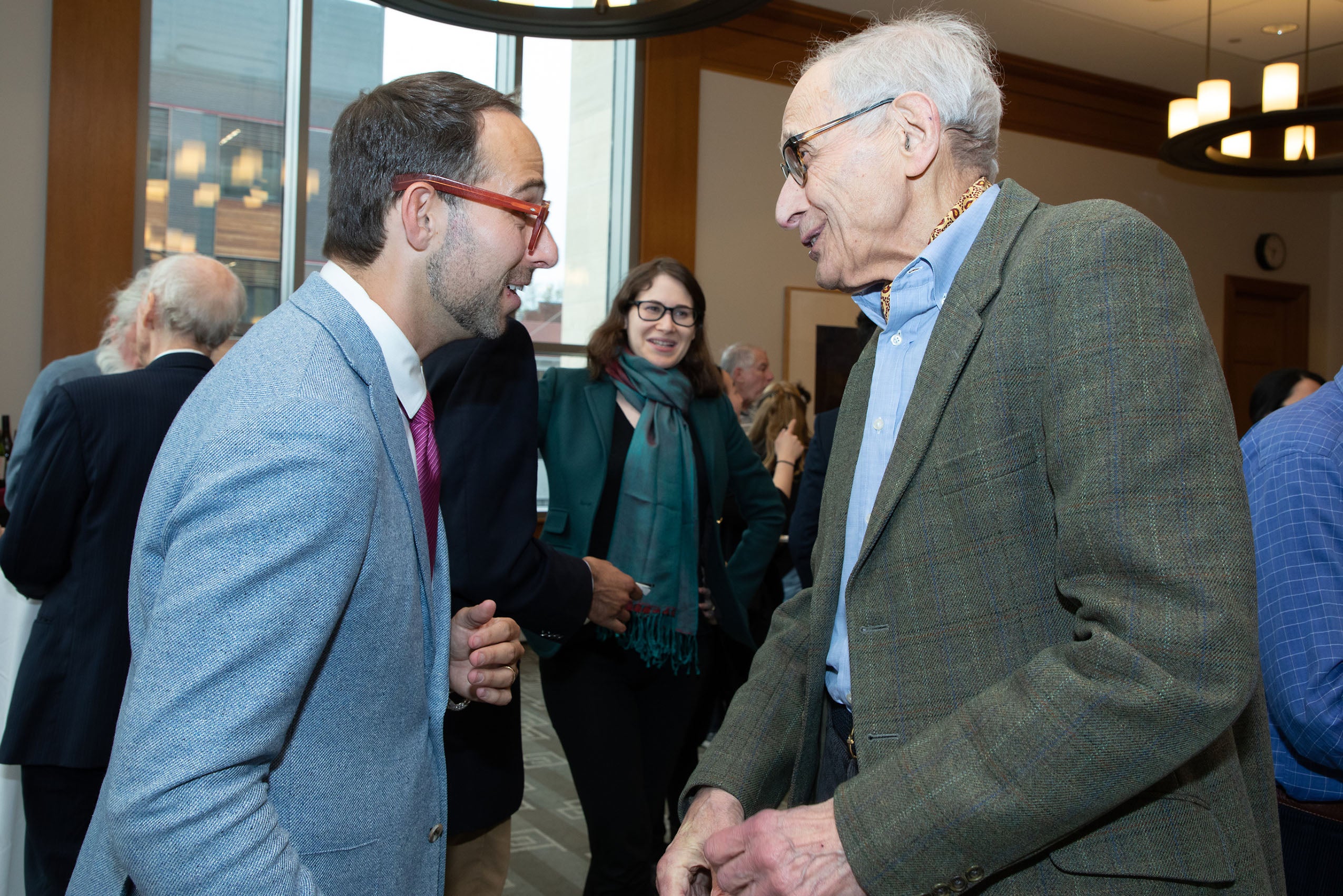
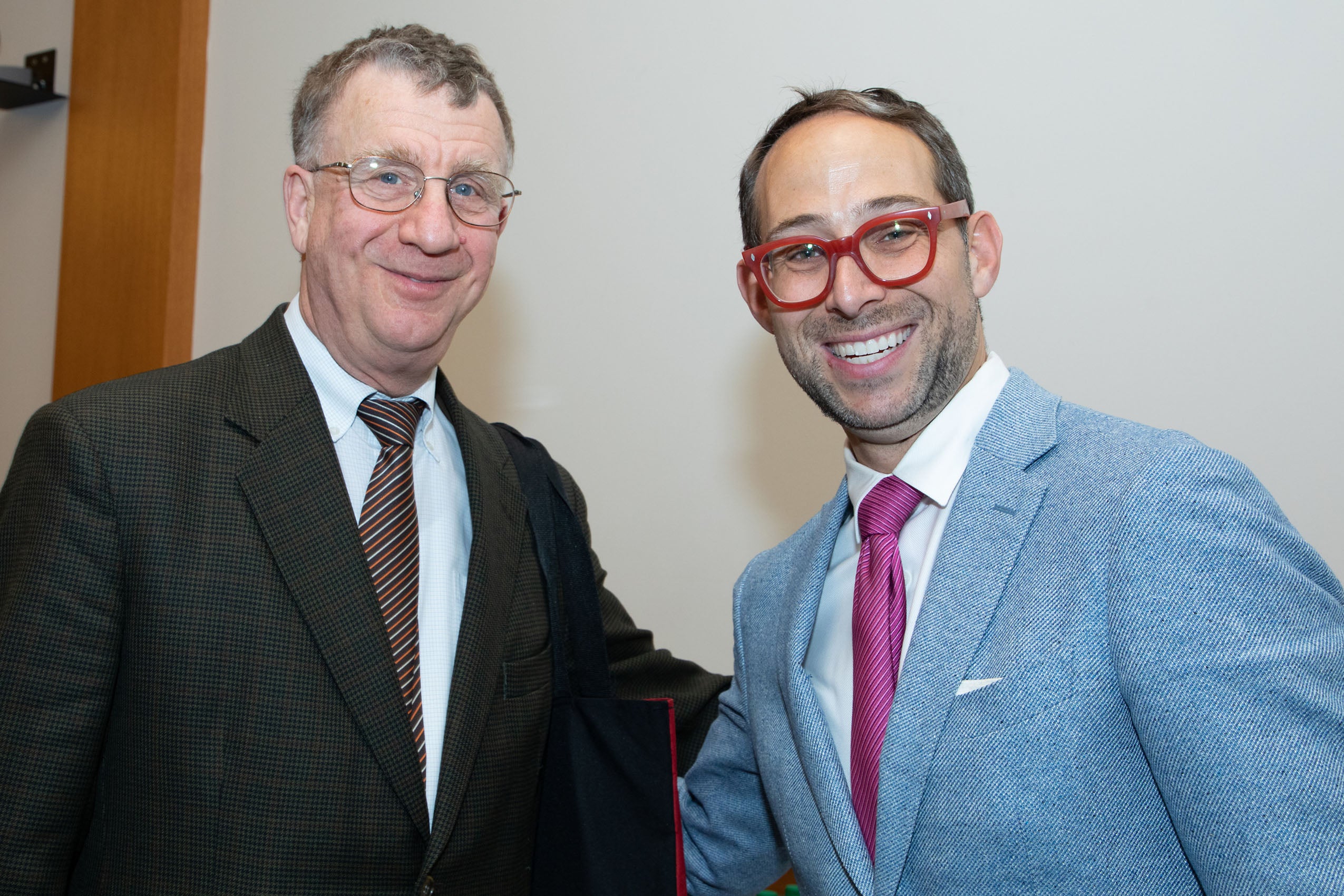
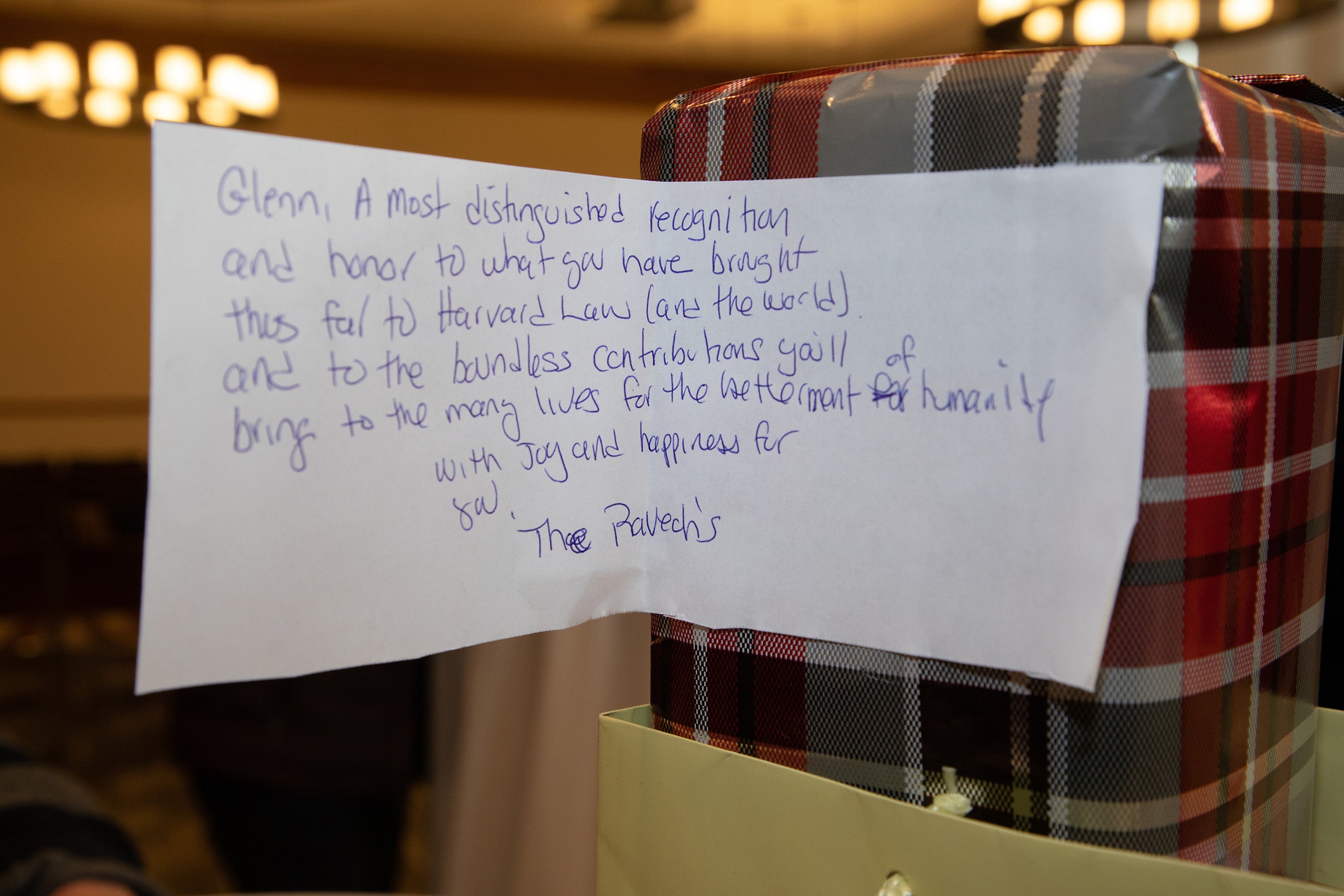
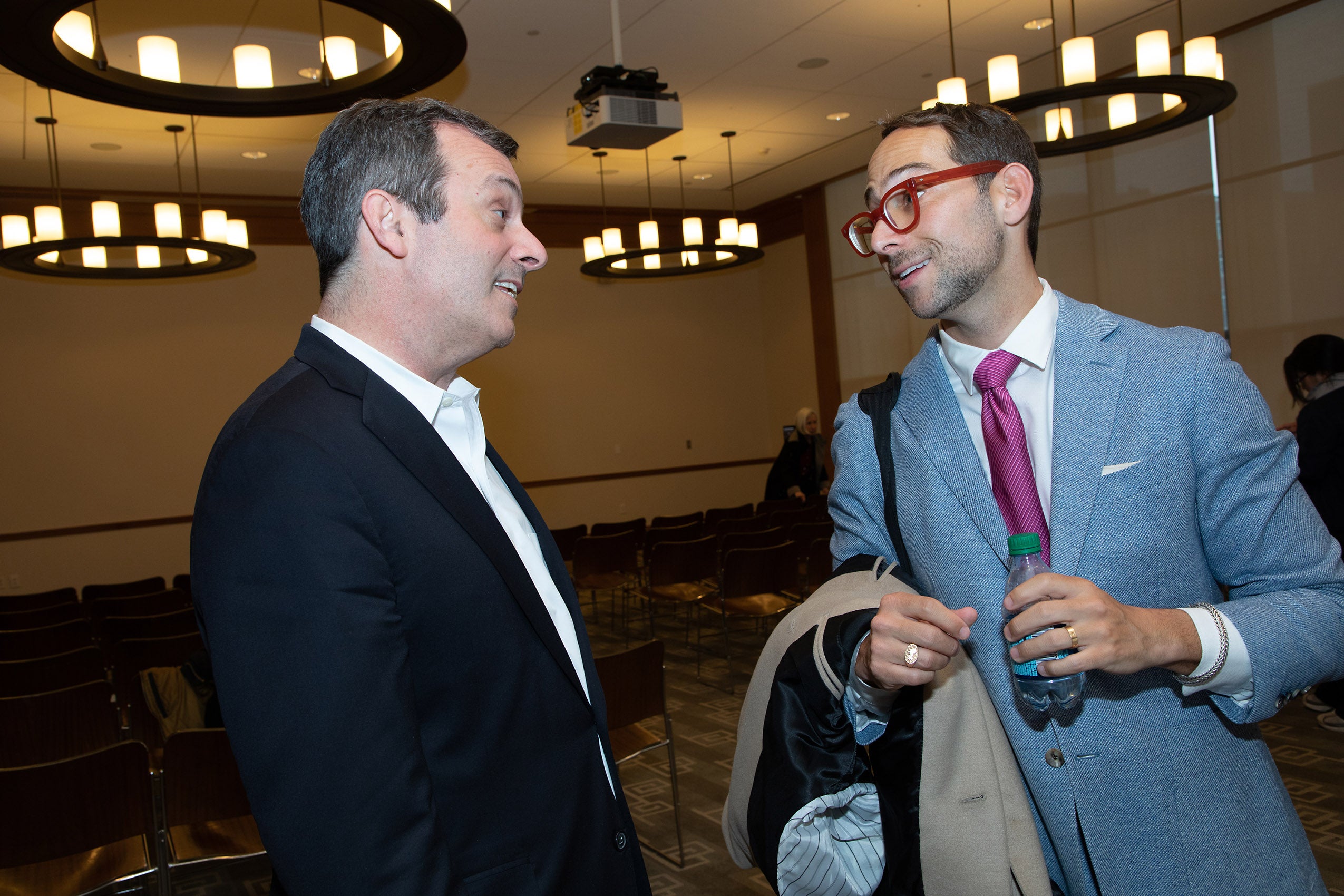
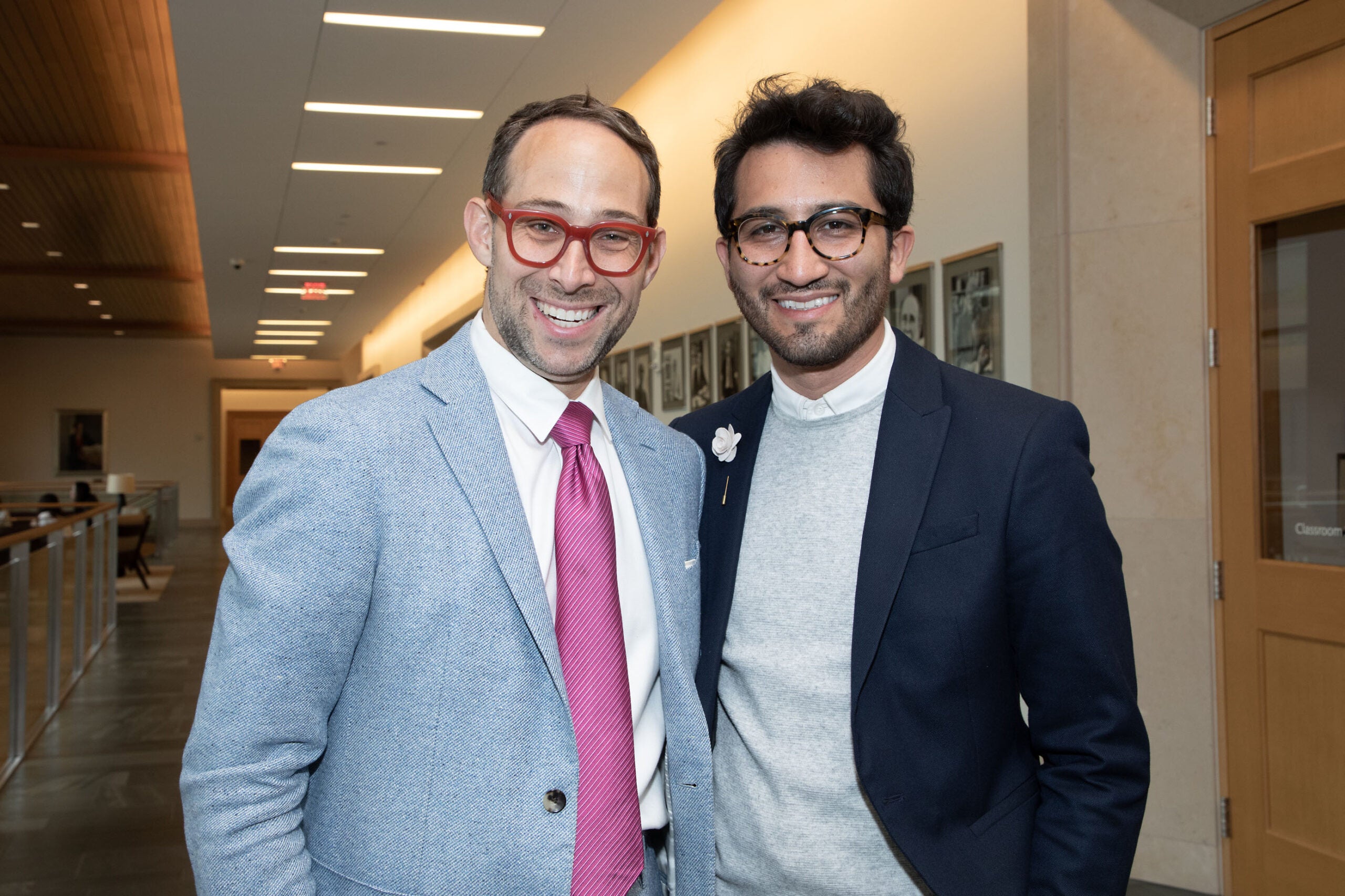
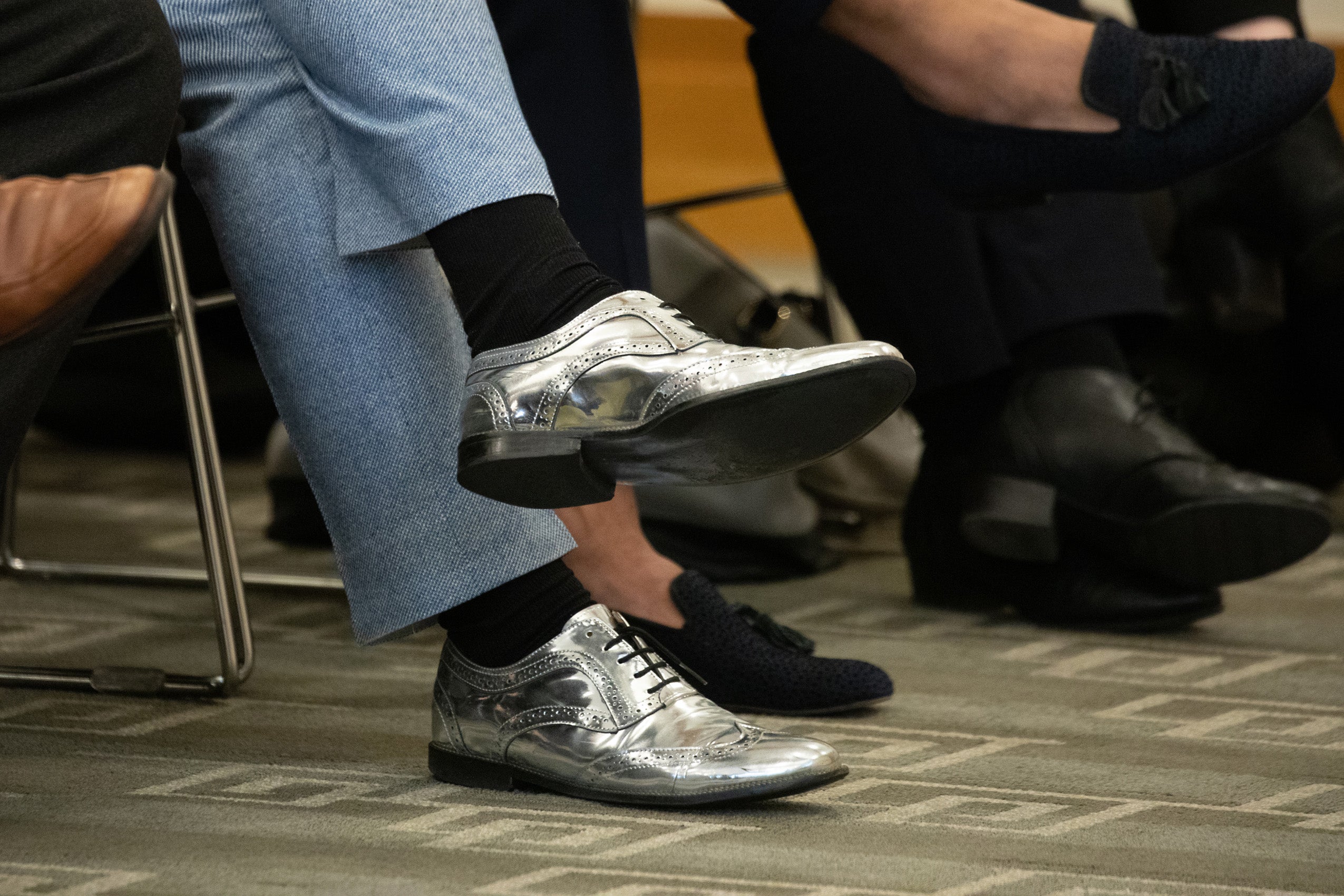
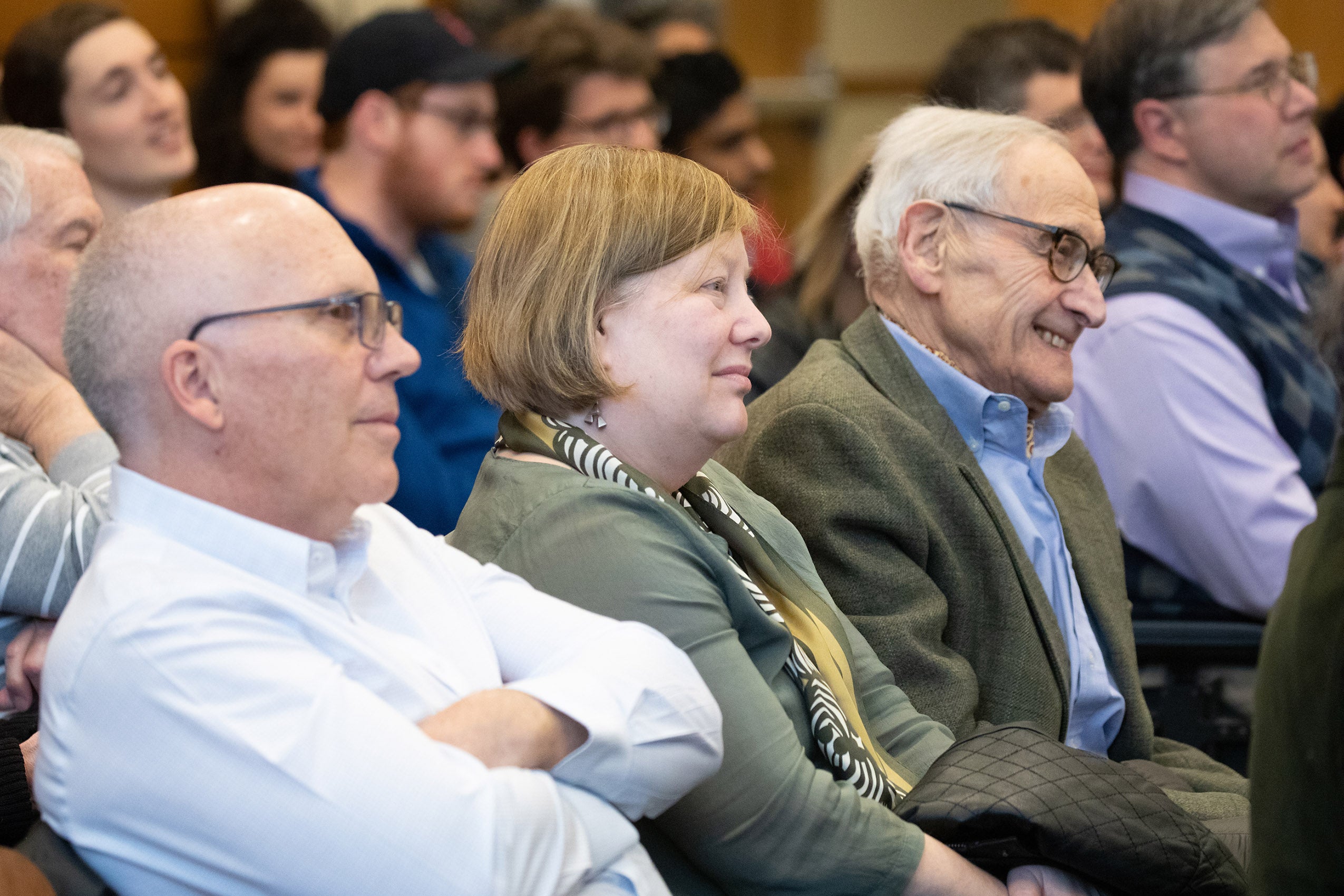
According to Cohen, the first reproductive revolution happened in 1978 in the United Kingdom with the birth of Louise Brown through In Vitro Fertilization, or IVF. The ability to fertilize an egg outside the human body through IVF technology has enabled millions of infertile individuals to reproduce. In the United States alone, said Cohen, at least a million babies have been born since the first IVF birth occurred in the United States in 1987.
While pioneering and disruptive, the first reproductive revolution was about mimicking what was available through sexual reproduction, said Cohen. The legal treatment of the technologies used in the first revolution could be accommodated in existing paradigms of family law. By contrast, he said, the second reproductive revolution, is focused on extending, rather than mimicking, traditional reproduction, which presents a number of new legal challenges. For example, he said, uterus transplants disrupt our idea of what a transplant is for since they can literally create life (pregnancy) from death (cadavers). Mitochondria replacement therapies add a second genetic mother who might have rights or duties to the children born.

“From the constitutional perspective, the second reproductive revolution is likely to require the U.S. Supreme Court to answer a series of questions it and the lower courts have assiduously avoided,” he said.
The James A. Attwood and Leslie Williams Professorship of Law is endowed by Jim Attwood JD/MBA ’84 and Leslie Williams ’84, dedicated supporters of Harvard Law School who met in their first year at HLS. Attwood has been on the Dean’s Advisory Board for almost a decade and just finished spectacular service as co-chair of the Campaign for the Third Century. They both have made important commitments to the Annual Fund and to the Attwood/Williams Scholarship. Notably, in recognition of former Dean Martha Minow’s singular contributions as a scholar and academic, their endowment stipulates that, upon Minow’s retirement, the chair will be renamed the Martha Minow Professorship.

Credit: Martha Stewart
Dean Manning said: “Jim and Leslie have recognized Martha’s singular contributions to human understanding through her scholarship, the gift she has given generations of students through her teaching and mentorship (she was Leslie’s third year paper advisor, by the way), and her exceptional leadership as dean of this Law School. … By honoring the incomparable Martha Minow, Jim and Leslie showed not only generosity, but also selflessness and plain old good judgment. They are true friends of this Law School.”